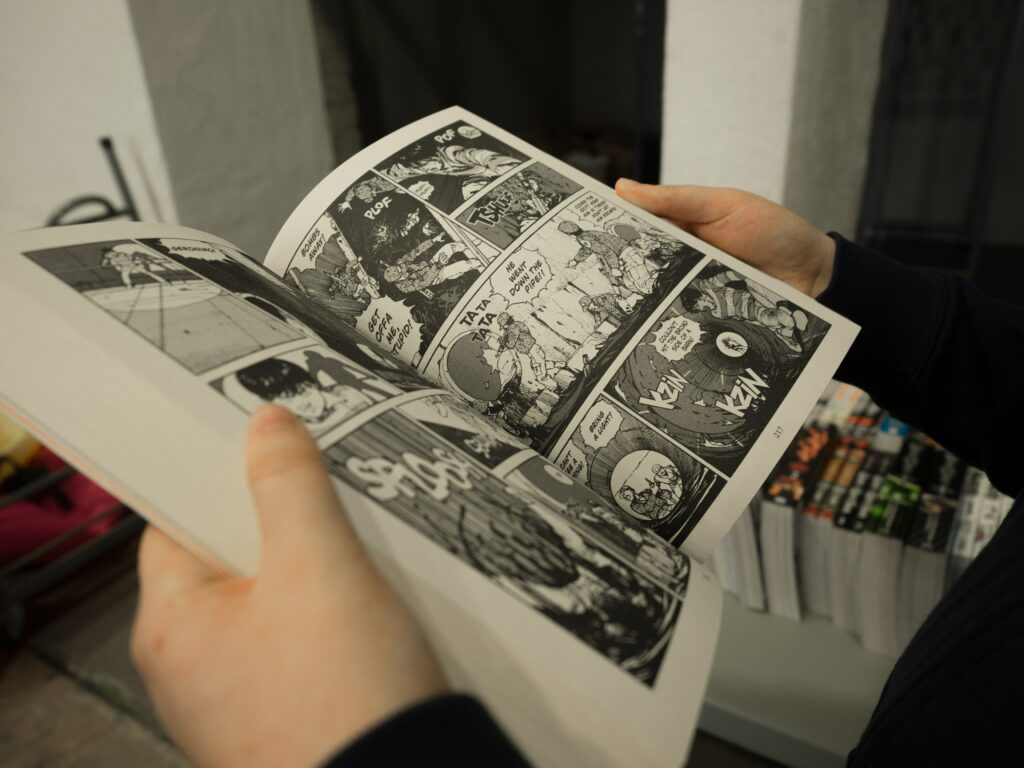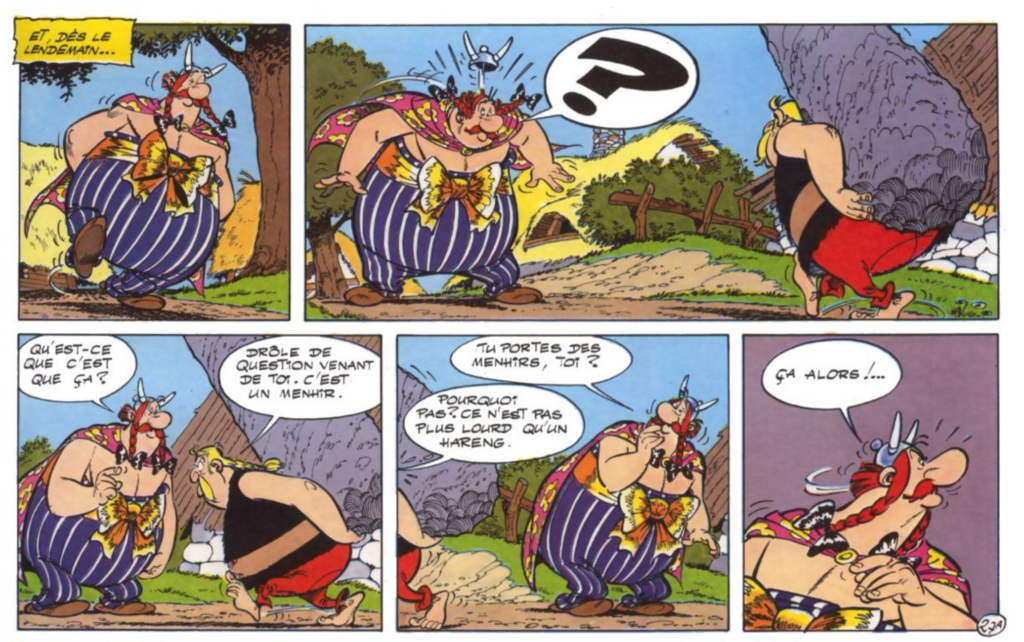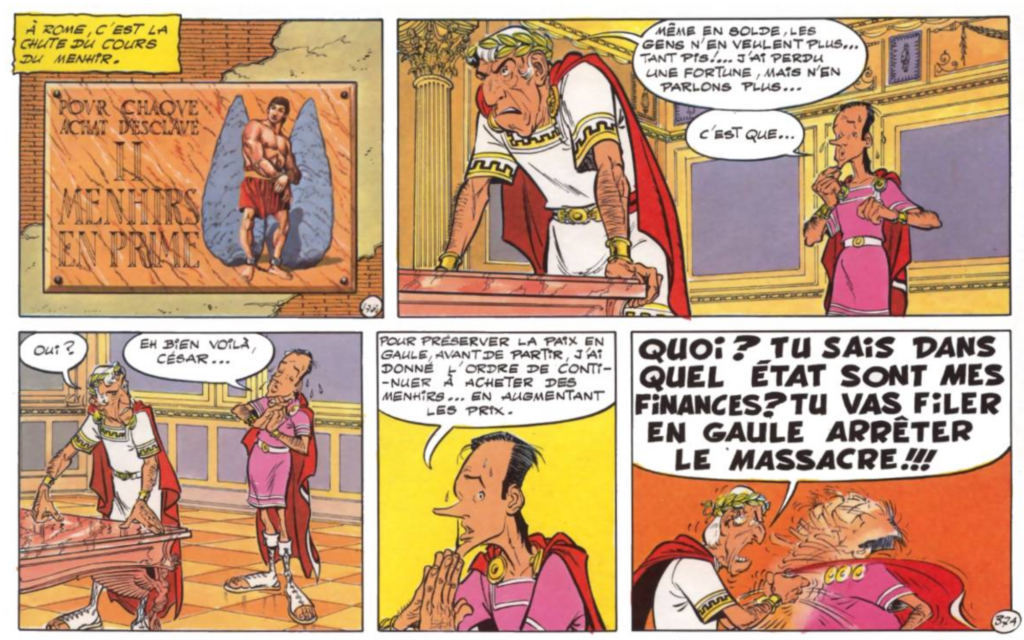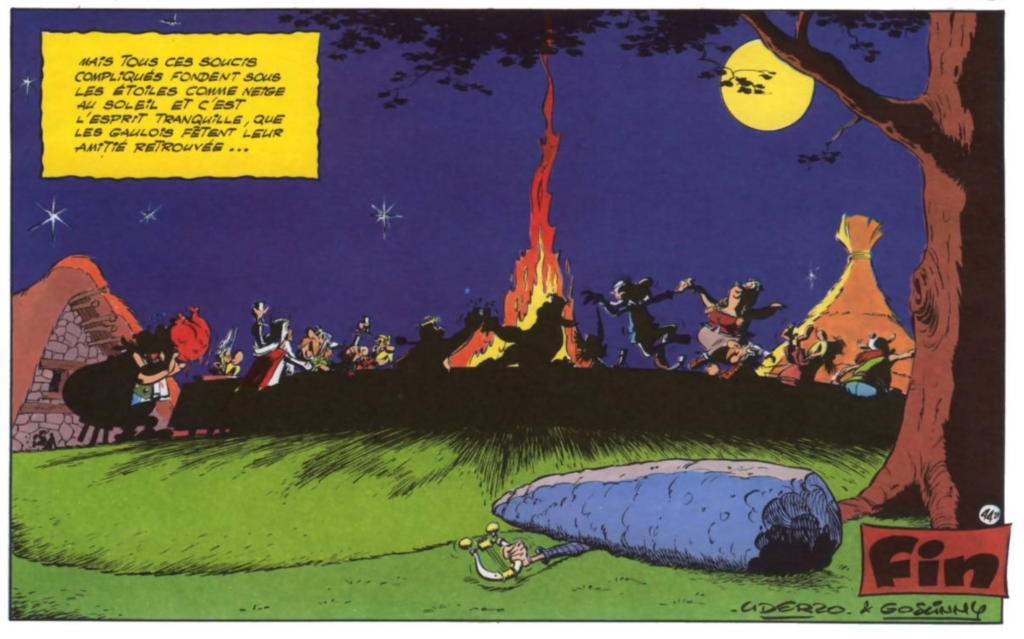For this entry I’ve finished the Astérix et Obélix comic I began last week. Much like when I read TinTin, I found myself understanding the second half of the comic much better than the first. I was also pleasantly surprised that, despite the more challenging and nuanced language used in this story, I was able to follow the plot closely all the way until the end of the book. When I listened to a French podcast, I noted that I found myself getting lost as the episode carried on at uninterrupted pace. With comics, pictures help provide important situational context to keep me on track, and I can slow down in sections I find more challenging.

The second half of the comic saw an unexpected shift for the Romans. In the first half of the story, a Roman official comes up with the idea to have Obélix bring menhirs to the camp (large oblong stones), which they would purchase at higher and higher prices. This economic activity was intended to displace the military activity he had undertaken against the Roman legion. The second half of the story finds the entire town getting roped into the menhir trade.

Eventually, one of the soldiers asks the man in charge of the menhir-distraction plan what they are to do with so many oblong stones. He answers that they belong to Caesar, because they were purchased with Roman money. In the next scene, the man in charge travels to Rome where he recounts to Caesar the ways in which he has neutralized the enemies in Gaul. Caesar, rather than being pleased with the pacification of a former enemy, becomes infuriated that so much was spent to acquire such useless objects. In direct response to Caesar’s fury, the crafty man quickly came up with a plan to put the newly acquire stones to good use. They decide to invest heavily into marketing the menhirs, in order to convince people that the large stones are ‘in-style’ and can be used for many applications. The marketing campaign works and the demand for menhirs quickly grows among the Roman populace. It seems that the Romans’ problems are solved until the stones quickly fell out of style, causing the emperor to demand a cessation of all menhir purchasing in Gaul.

When the crafty Roman leader brought Caesar’s news back to Gaul, the citizens there responded with outrage and frustration, wondering what they would do with all of their oblong stones they had carved. When they realized they could no longer receive wealth from the Roman invaders, the people of Gaul banded together to attack and raid the Roman legion’s camp. Having defeated the Roman soldiers, Astérix, Obélix, and the citizens of Gaul are shown sitting around a campfire, pleased with their reconciled community relationships.

I look forward to finding more opportunities to learn languages via comic books and graphic novels. I suspect my challenge, going forward, will be to find free comic books online in the respective languages I hope to learn. If I can find a reliable repository of foreign comic books I’m sure my own language learning would be immensely improved, and future students will likely enjoy class a little more when such engaging and entertaining resources are made available.




